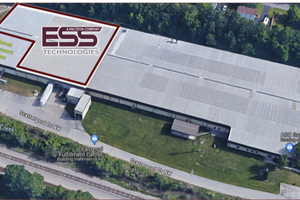Minnesota Designated as Federal Medtech Hub
The designation by the Biden Administration means the state is now eligible to receive between $40 million and $70 million in federal funding.

Minnesota’s medtech industry received major news on Monday when the Biden Administration announced the state has been federally designated as one of 31 inaugural “Tech Hubs” in the United States.
President Biden and Secretary of Commerce Gina Raimondo announced the designation of Regional Innovation and Technology Hubs (Tech Hubs) across the country as part of the CHIPS and Science Act in order to invest in domestic technologies “critical to economic growth, national security, and job creation,” according to the White House briefing room. “[This] will help communities across the country become centers of innovation critical to American competitiveness.”
The regions were designated through the Department of Commerce’s Economic Development Administration (EDA).
Minnesota’s Medtech Hub 3.0 was selected out of 370 applications spanning 49 states and four territories and included industry, academia, state and local governments, economic development organizations, and labor and workforce partners. As part of the competition, each consortium had to outline its plans to strengthen its region’s capacity to manufacture, commercialize, and deploy critical technologies, according to the EDA.
Led by the Minneapolis Saint Paul Economic Development Partnership (Greater MSP Partnership), the consortium said its aim is to position the state as a global center for Smart Medtech, including the integration of artificial intelligence, machine learning, and data science into medical technology.
“This is a major win for the region and state,” said Peter Frosch, president and CEO of the Greater MSP Partnership, in the company’s press release about the news. “This designation is a national bet on the plan our region and state developed to build the next frontier of medical technology. MedTech 3.0 is a national and global effort that will be based here.”
Greater MSP Partnership collaborated with more than 20 organizations to develop their strategy to enhance the US economy and national security through medical device technology. While the state is already seen as having a strong medtech ecosystem, medtech 3.0 specifically aligns organizations around a strategy to connect the regions medical device manufacturers with other parts of the healthcare system, like healthcare providers, insurers, information technology firms, private capital, research institutions, and government. Additionally, the coalition plans to incorporate existing programs and solutions to speed up and improve the innovation process.
The proposed actions include, “New data exchanges that enable organizations across the healthcare system to share insight on specific disease and technology areas,” according to Greater MSP Partnership. “Startup incubators and accelerators that are scaled to support entrepreneurs working across different stages of the journey to build new products and solutions; Expanded access to lab spaces, private equity, supply chains and other key infrastructure that fosters greater medical-technology innovation; Next-generation talent strategies that address workforce gaps through the enhancement of training programs and career pathways, such as apprenticeships; and Comprehensive approaches to advancing equity to better connect underrepresented populations and rural and tribal areas to Minnesota’s medtech growth.”
The tech hub initiative was authorized with $10 billion from the CHIPS and Science Act and selected regions are now eligible to receive between $40 million and $70 million each for implementation funding, totaling nearly $500 million. The coalition stated that it will “apply this designation to existing local and global efforts and will seek federal funding for the region and state this winter.”
EDA also awarded 29 Strategy Development Grants to help communities increase coordination and planning activities which would make recipients more competitive for future tech hub funding opportunities.
“President Biden’s Investing in America agenda is rooted in policies that will empower the United States to out-innovate and out-compete the rest of the world. Our Tech Hubs Program is fundamental to that mission and will supercharge innovation across the nation by spurring cutting-edge technological investments and creating 21st century job opportunities in people’s backyards,” said Raimondo. “Each of these consortia will help us ensure the industries of the future — and their good-paying jobs — start, grow, and remain in the United States.”
The full list of federally designated tech hubs are available on the White House’s website.
About the Author(s)
You May Also Like




